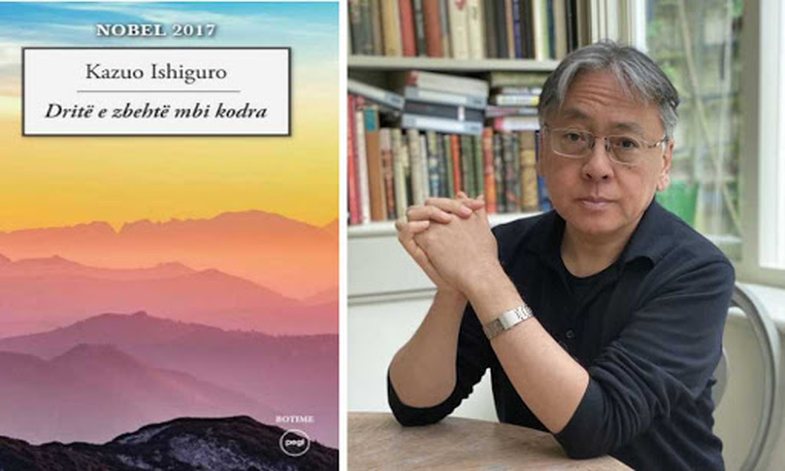
"I am convinced that memory is not trusted; "Often, the circumstances in which we find ourselves, when we bring something to mind, distort it completely and, no doubt, such a thing may have happened to some of the memories I have summarized in these pages." - excerpt from "Dim light on the hills", a heartbreaking story about the war, self, memories and feelings of a woman in the face of the big world and that most hidden from us.
"Dim Light on the Hills" (1982) is the first novel by Nobel laureate Kazuo Ishiguro. From the quiet and foreign environment of her English home, Etsuko, a Japanese woman who now lives alone, turns her gaze from the painful present to seek elsewhere the meaning and reason of her life. "Dim Light on the Hills" has been described as a novel full of finesse on the suppression of emotions and feelings, closely linked to the importance of the past in the sense of the present.
"The dim light on the hills," a subtle, ironic and elliptical novel that, more than telling, implies, "writes The New York Times. "By masterfully combining the past and the present, this first novel reveals a depressing and disturbing story that longs for the reader for both what he tells and what he does not tell," the Library Journal writes.

Ishiguro është konsideruar nga kritika si një përzierje e Xhejn Osten, Franc Kafkës dhe Marsel Prustit. “Ai është shumë i interesuar për të kuptuar të kaluarën, por nuk është shkrimtar prustian, ai nuk tenton të zhbëjë të kaluarën, ai eksploron atë që duhet të harrosh për të mbijetuar në radhë të parë si individ ose si shoqëri,” u shpreh sekretarja e Akademisë së Nobelit në 2017-n, kur Ishiguro u vlerësua me Nobelin në Letërsi.
Akademia suedeze e vlerësoi Ishiguron duke e përshkruar si një shkrimtar “i cili, në romane me një forcë të madhe emocionale, ka zbuluar humnerën që fshihet nën ndjesinë tonë të gënjeshtërt të lidhjes me botën.”
Pesë prej librave të tij janë botuar në shqip nga Botime Pegi, “Mos më lër të shkoj”, “Dita e mbetur” “Gjiganti i fjetur”, “Artist i botës fluturake” dhe “Dritë e zbehtë mbi kodra”.





